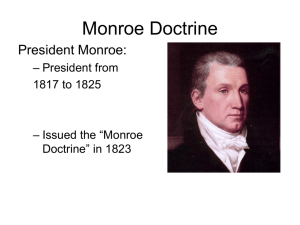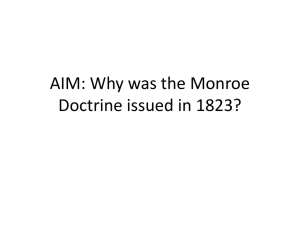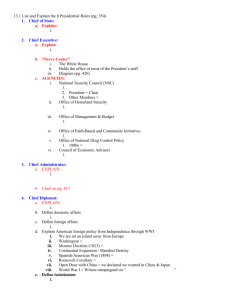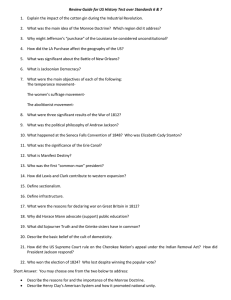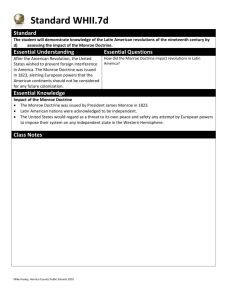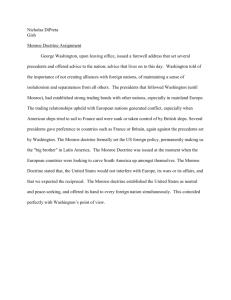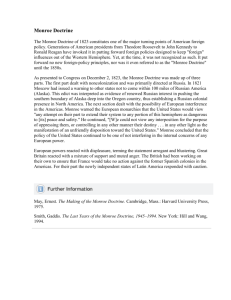Monroe Doctrine: US Foreign Policy Explained
advertisement
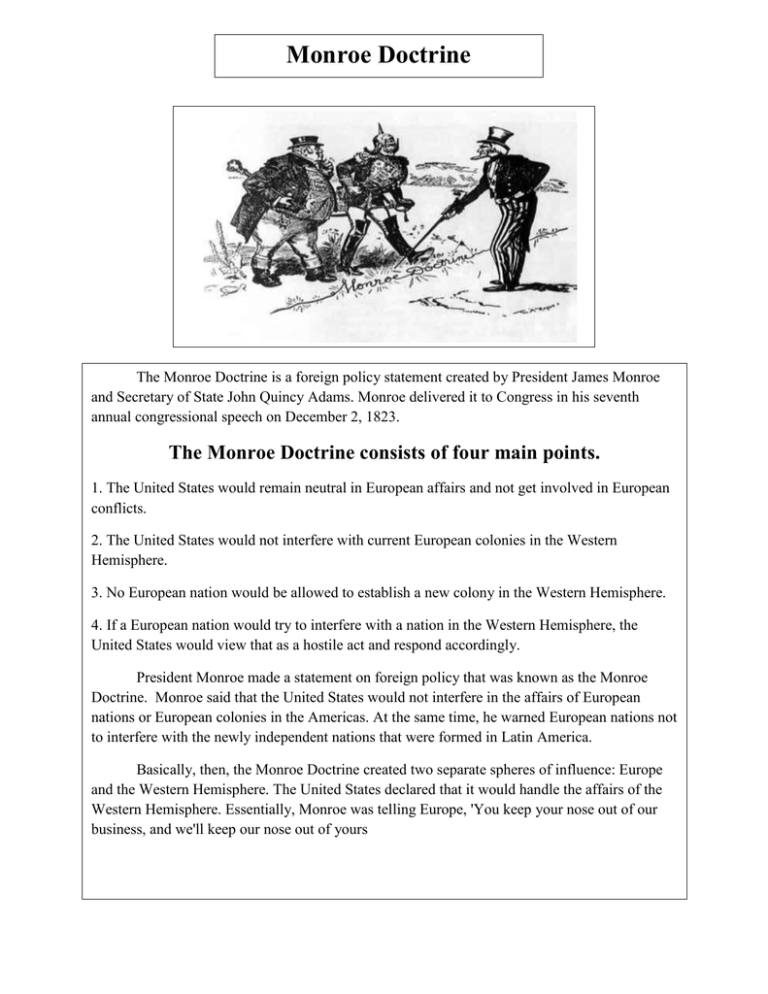
Monroe Doctrine The Monroe Doctrine is a foreign policy statement created by President James Monroe and Secretary of State John Quincy Adams. Monroe delivered it to Congress in his seventh annual congressional speech on December 2, 1823. The Monroe Doctrine consists of four main points. 1. The United States would remain neutral in European affairs and not get involved in European conflicts. 2. The United States would not interfere with current European colonies in the Western Hemisphere. 3. No European nation would be allowed to establish a new colony in the Western Hemisphere. 4. If a European nation would try to interfere with a nation in the Western Hemisphere, the United States would view that as a hostile act and respond accordingly. President Monroe made a statement on foreign policy that was known as the Monroe Doctrine. Monroe said that the United States would not interfere in the affairs of European nations or European colonies in the Americas. At the same time, he warned European nations not to interfere with the newly independent nations that were formed in Latin America. Basically, then, the Monroe Doctrine created two separate spheres of influence: Europe and the Western Hemisphere. The United States declared that it would handle the affairs of the Western Hemisphere. Essentially, Monroe was telling Europe, 'You keep your nose out of our business, and we'll keep our nose out of yours
